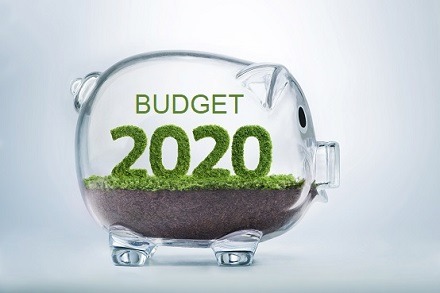We summarise the main points from the Budget 2020 and our tax team highlight the key points for business owners.
Understandably Rishi Sunak began his Budget speech with the actions the Government is taking to keep the country healthy and financially secure during the Covid-19 outbreak. He acknowledged that there would be a significant but temporary impact on the economy.
The Government’s measures are aimed at shoring up demand and supply. The three point plan includes giving the NHS whatever it needs to cope with Covid-19; supporting the finances of those who cannot work with Statutory Sick Pay (SSP) being made available from day 1 and on advice to self-isolate from 111 and for the self-employed quicker and easier access to benefits (Employment and Support Allowance); and supporting businesses, refunding SSP for 14 days for businesses with less than 250 employees, deferring tax payments, giving access to working capital loans through the Temporary Corona Virus Business Interruption Loan Scheme and business rates reliefs.
Against this backdrop, the Chancellor delivered his Budget. Keen to stress that “they were getting the job done”, there were changes that we believe are particularly relevant to business owners.
- National Insurance threshold increased to £9,500 in April 2020. Those on low salary and dividend policy will need to review their remuneration levels to ensure their National Insurance record is maintained.
- Employment Allowance increases for National Insurance from April 2020 to £4,000. This means eligible businesses and charities will be able to claim a greater reduction on their Secondary Class 1 National Insurance Contributions liability.
- Entrepreneurs’ Relief, was not fully abolished as was widely predicted. Instead the lifetime limit was reduced from £10 million to £1 million for qualifying disposals made on or after 11 March 2020. There are special provisions for transactions and elections designed to bank the £10m lifetime limit prior to the change.
- Corporation Tax rate remains unchanged at 19%.
- Pensions tax changes to income thresholds for calculating the tapered annual allowance from 6 April 2020. This change will see many more high earners being able to access the £40,000 annual allowance than previously with an increase in the threshold income to £200,000 and taper threshold to £240,000.
Craig Simpson, Tax Partner at Bates Weston comments:
“Overall a targeted budget with a small number of tax changes. It is disappointing to see Entrepreneurs’ Relief reduced to lower levels which reduces the reward for entrepreneurial activity and aligns tax rates with passive gains for disposals above £1m. On the flip side changes to pension saving limits are positive and will mean more high earners can access the £40,000 annual allowances than previously. It is also positive that low rates of Corporation Tax are maintained. In conclusion, a strong focus on support measures for Corona Virus and heavy spending promises. Continued economic growth will be key to ensure borrowing is kept under control.”
Read our Bates Weston Budget Summary 2020 here and we will publish more details on how the Budget announcements may affect you or your business as they emerge. If you would like to speak with us on any aspect of the Budget, please do get in touch.

